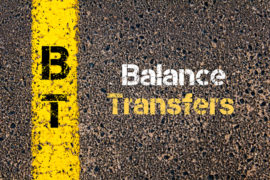Credit cards often seem like an easy way of getting access to money, but poor handling sees many people end up in unsustainable amounts of debt that they are simply unable to pay back.
Legal and financial adviser Barney Almazar, who is based in the United Arab Emirates, says that he receives an average of 70 to 100 enquiries from people in ever-increasing amounts of debt every week, which amounts to over ten queries every day to just one UAE lawyer.
Debt is a recurring issue for many people in the UAE, and the way that credit cards are used and sometimes abused by their owners is linked to the problem in a lot of cases.
Many people borrow money to bridge a financial gap, make impulsive purchases, fund a party, or to be able to afford a much-needed holiday, but these kinds of large expenses should always be pre-planned, and when the unexpected strikes, such as falling sick or being made unemployed, households can fall out of balance.
The reality of today’s world is that people experience unexpected shocks such as pay cuts or job losses at least once in their life, making it vital to be prepared for such possibilities and to spend rationally and ensure that you have the right financial priorities.
There will always be financial companies and banks in the UAE trying to tempt customers to take out more loans or to buy a large purchase with the promise of easy monthly payments, but it is important not to buy into such ploys.
The stark reality in the UAE is that defaulting on credit card debts can result in a prison sentence, and even if you do go to prison, your debt will remain.
Almazar says that people who find that they are caught in such situations should talk to their bank and try to come up with a way to consolidate their debt, adding that in the great majority of instances, people are able to come to an amicable settlement with their bank that both parties can agree on.
Almazar points out that there is always hope no matter how bleak the situation may look, citing a recent case in which his firm was able to settle the case of a Filipina for just Dh15,000 in spite of her debts amounting to Dh1.7m as proof that there is always hope.
If you are getting into debt because of your UAE credit cards, take another look at your circumstances and attempt to consolidate the debt you have accumulated on different credit cards.
One good tip is to explore another credit card company’s balance transfer facility, as they usually provide a period of three to six months that is interest-free.
You should also approach your bank to try to get them to restructure your outstanding balance into that of a fixed-term loan, which prevents heavy interest from accumulating as well as the accruing of even more late payment fees.




